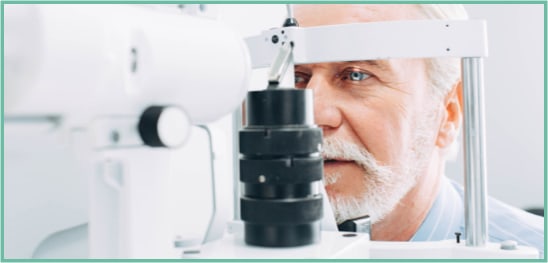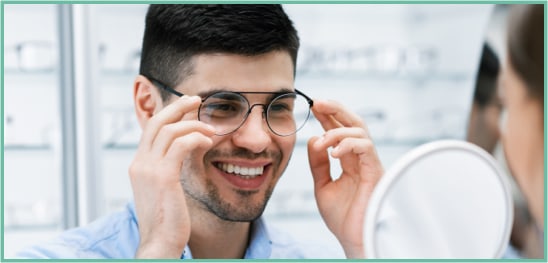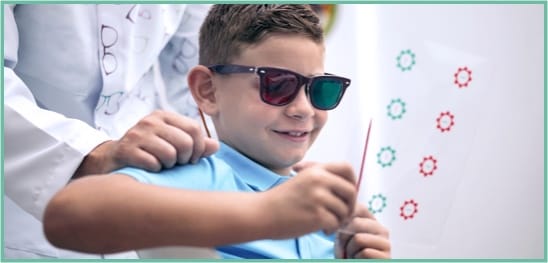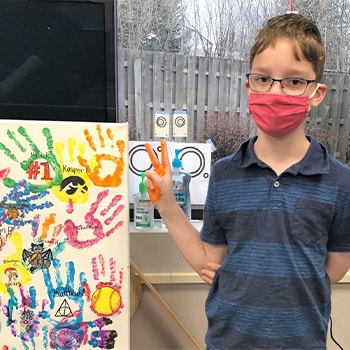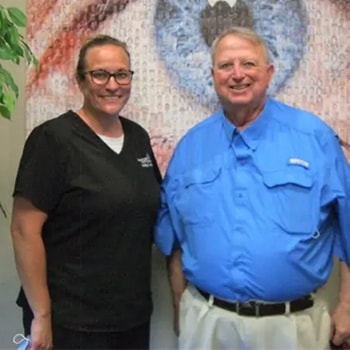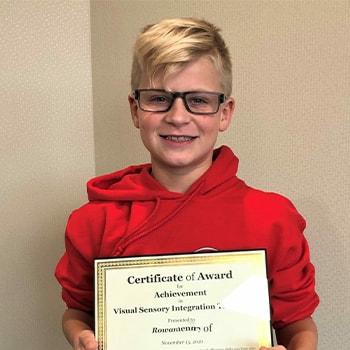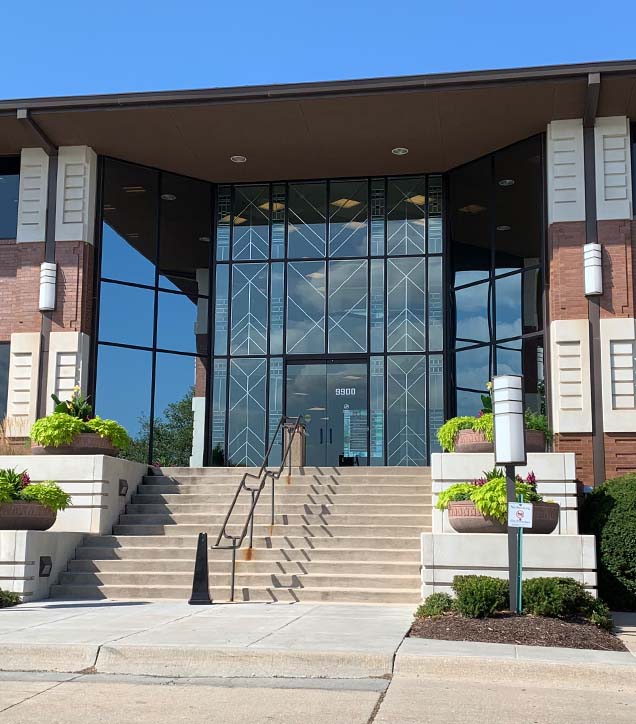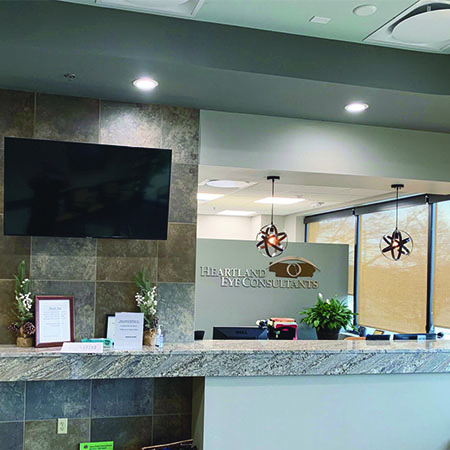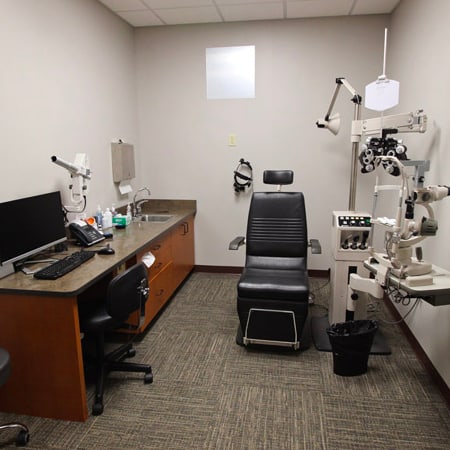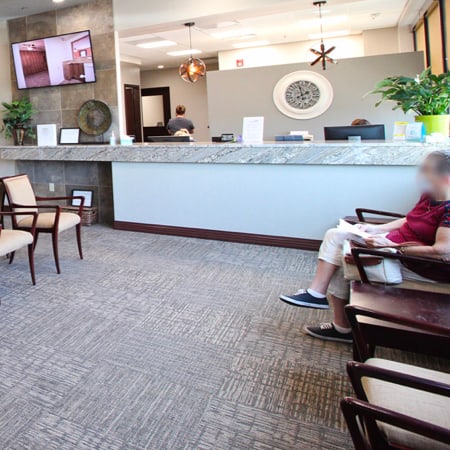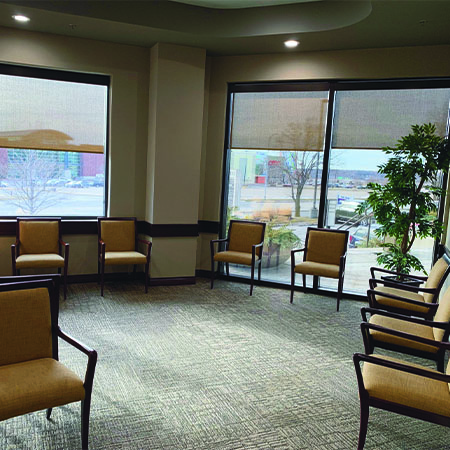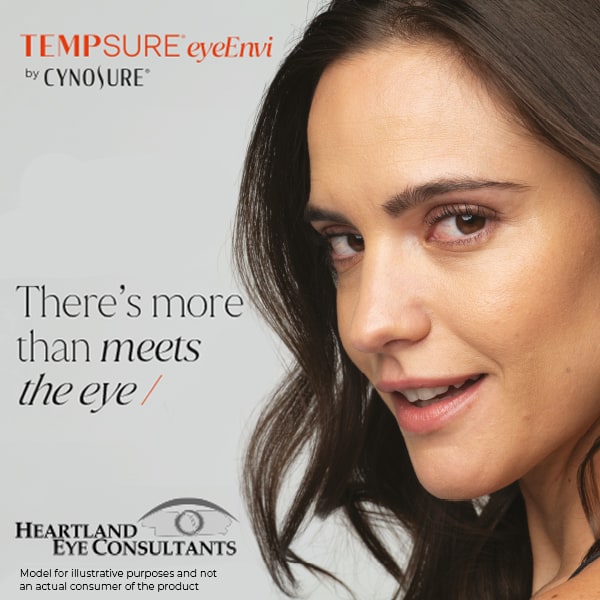Eye Turn (Strabismus)
Strabismus is the condition in which a person is unable to align both eyes. When both eyes do not point at an object at the same time, it results in the appearance of one eye turning in, out, up, down. This eye turning may be:
- constant (one eye turns all the time)
- intermittent (an eye only turns sometimes or when looking either close or far)
- alternating (person switches between which eye turns)
There are many different causes of strabismus and the treatment is dependent on the specific type and cause. Many doctors have said that strabismus can only be treated before a certain age, however, strabismus can be treated at any age! Some factors favor younger patients, while treatment with adults can be easier because of better compliance and motivation. Treatment may consist of prescription lenses, prisms, and a program of vision therapy.
In certain patients, surgery may be recommended in conjunction with vision therapy. Surgery may cosmetically straighten the eyes, but does not improve visual function. This is because if you think back to the problem in strabismus- the strabismus is not a problem with the eyes or muscles controlling the eyes, it is a problem with the brain. Surgery cannot change the brain. The prognosis for optimal outcome in these cases where surgery is indicated is enhanced through pre and post-surgical vision therapy.
Whether it is constant or intermittent, strabismus always requires treatment. It rarely goes away by itself nor will children outgrow it. Many people with strabismus do not realize their own problems and often seek treatment because they do not like the look of the eye turn. However, they also often experience symptoms without knowing it. When the 2 eyes are not lining up the brain has 2 options: either see double vision or turn one eye off (suppression). Most patients that develop strabismus at a young age turn the one eye off. This may sound like a good thing, but whenever the eye is open it is on and it takes energy to turn the eye off which is making the brain less efficient for learning.
Many patients with strabismus experience:
- diplopia
- poor depth perception (difficulty catching and hitting balls in sports, difficulty driving or parking a car,
- inability to see 3D movies, difficulty with jobs that require precise depth perception such as surgery and dentistry)
- amblyopia (reduce vision in one eye due to the eye being turned)
- poor coordination (difficulty riding a bike without training wheels)
- slower visual processing speed (slower at reading and test taking)
So how can vision therapy help these patients?
Vision therapy is a re-training of the brain how to properly control the muscles that move the eyes, both independently and as a team. With vision therapy there are several tools for a person to learn how their vision is functioning and how they can change their eye alignment. In comparison to surgery, which just cuts and moves the muscles, therapy allows the brain to learn the proper signals to align the eyes. This process of learning how to control the eyes creates new neural pathways for the brain to send the correct signals for the eyes to correctly align. Unlike surgery, therapy does take significant time and effort to re-train the brain, but the results are lifelong and well worth the effort without any side effects like a surgery would have! You can go to see our stories about patients with eye turns who completed therapy both on our website and Facebook page!



